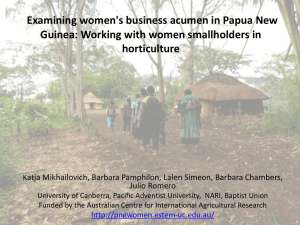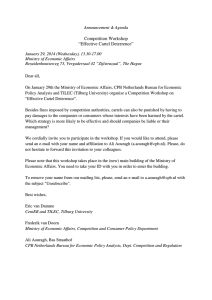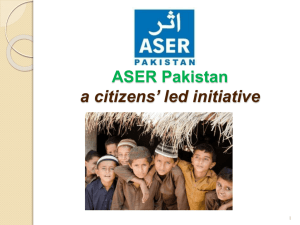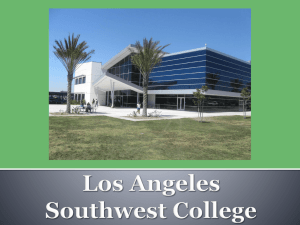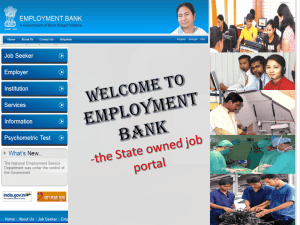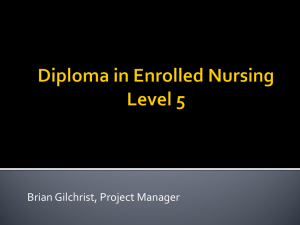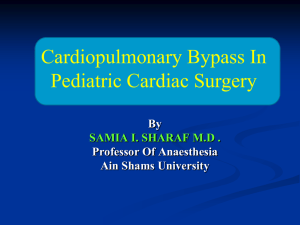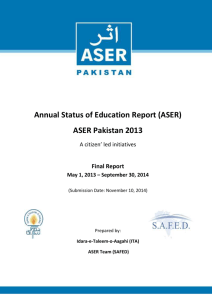Click here to view Presentation 1.1
advertisement
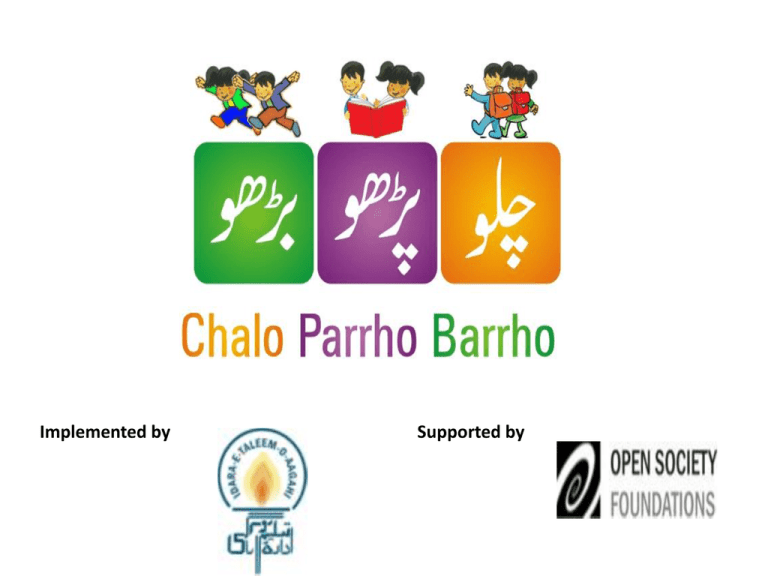
Implemented by Supported by Chalo Parrho Barrho Chalo Parrho Barrho (CPB)-Let’s Read and Grow is a learning enhancement campaign mobilized and implemented by citizens in response to the results of the Annual Status of Education Report (ASER 2010). ASER is also a citizen led learning survey based on evidence gathered through ASER. ASER 2010 • ASER 2010 survey was conducted in 32 rural districts of Pakistan • A total of 19,006 households were surveyed in 960 villages across 32 districts • Information was collected on 54,062 children ASER 2010- National Learning Outcomes(6-16 years) Children can read/do Literacy Numeracy % of children Simple Stories 34 Words but not Sentences 19 Alphabets but not words 17 Nothing 15 Division 25 Subtraction 44 Numbers 11-99 39 Numbers 1-10 16 Program Concept The data revealed that a significant percentage of children could not read nor do even basic arithmetic. So, a program was conceptualized whereby the main objective would be to enhance learning levels(reading and numeracy) of children of primary level through citizens mobilization and action. Program Concept CPB Identify Children with Low Learning Levels Unable to read sentences both in English and Urdu properly Unable to perform basic arithmetic operations ( Combined activities for maximized learning – CAMALMethodology) Learning Enhancement classes Duration 4 months Improved Learning Levels of Children Goals of CPB Children will be able to: • Read alphabets, words, sentences and story (English and Urdu) • Comprehend word meaning, simple instructions, and simple texts. • Write correctly words, dictated sentences and selfconstructed sentences • Recognize and understand numbers • Do, say and write addition, subtraction & addition problems • Understand and use tables to solve multiplication and division problems First Baithak - March (Community Meeting) Four main concerns of the community: • Low Learning Levels of Children in School • Out of School Children • Literacy program for mothers • Early Childhood Education ASER BAITHAK(Meetings) Program Components The program targets include: • In-school children Improve learning levels of enrolled children in grades 1-5, who are risk of dropping out. • Out of school children Catch up learning program to bring out of school children to a learning level where they can be mainstreamed into the formal school system. Program Characteristics • Educated volunteers are recruited from the targeted villages to conduct CPB Classes • Volunteers are trained in CAMAL methodology • At least 2 volunteers per village • Duration: 20 weeks • Each milestone is overseen by the citizens of the locality CPB Program - Team Design Local Community Local Community Activists/Volunteers ITA Field Teams and Govt. District Education Officers Remained active partners Research and M&E Team Provincial and National Advocacy/Policy Analysts Targeted Community Pilot Phase Targeted Villages In the Pilot Phase • Rawani –Multan district •Wahid Buksh Lar-Rahim Yar Khan 100% Household Survey 100% Household Data-Rawani 463 245 100% Household DataWahid Buksh Lar 604 326 218 278 56 162 22 66 212 19 % who can read alphabets-Urdu 22 10 % who can read Sentences-English 14 19 % who can read alphabets-English 11 9 % who can do subtraction % who can recognize numbers 11-99 12 18 8 12 Total Children (3-16 yrs) Enrolled In School Out of School Drop Out Never Enrolled % who can read story-Urdu CBP Program Steps 1. ASER Survey 2. ASER Baithaks (Community Meeting) for presenting ASER results 3. 100% household survey of the targeted villages to get information on •Out of school children of primary school going ages (drop outs and never enrolled) •Enrolled Children •Adolescent children (12-16 yrs) who are OOSC •Learning Assessment of the children 4. Intervention •Training in CAMAL Methodology •CPB Classes Continued… CBP Steps 5. Baseline Learning Assessment 6. Midterm Assessment 7. Baithak (Community Meeting) to share progress details and deal with any concerns and issues so far. 8. Final Assessment 9. Going back to the community with results of the intervention in an open large gathering – sharing and acknowledging action 10.Dissemination of the program report to government official and policy analysts- advocacy for a citizen led campaign taking action on the basis of evidence Training Workshop (Multan) Assessment Results Reading-Urdu 50% 45% 40% 35% 30% 25% 20% 15% 10% 5% 0% 43% 36% 33% 28% 27% 26% 21% 15% 14% 16% 17% 12% 9% 1% 1% Nothing Letter Baseline Word Midterm Sentences Final Story Assessment ResultsUrdu Reading 40% 50% 36% 40% 30% 33% 35% 25% 30% 21% 20% 15% 43% 45% 35% 25% 16% 15% 12% 10% 20% 14% 15% 9% 10% 5% 5% 0% 0% Baseline 1% Final Assessment Results Reading-English 60% 50% 50% 44% 40% 30% 20% 36% 35% 36% 26% 18% 18% 14% 13% 10% 3% 6% 1% 0% 0% 0% Nothing Letter Baseline Word Midterm Sentences Final Story Assessment ResultsEnglish Reading 60% 40% 50% 50% 36% 36% 35% 30% 40% 25% 30% 20% 20% 26% 15% 18% 14% 13% 10% 10% 6% 5% 0% 0% Baseline 1% 0% Final CPB Class Pictures Assessment Results Mathematics 40% 35% 30% 25% 20% 15% 10% 5% 0% 36% 22% 24% 23% 11% 7% 2% 1% 26% 19% 15% 13% 12% 11% 26% 18% 15% 10% 1% Baseline 7% 1% Midterm Final Assessment ResultsMathematics 40% 30% 36% 26% 35% 25% 23% 30% 25% 22% 20% 15% 13% 15% 10% 19% 20% 12% 10% 11% 10% 7% 5% 5% 1% 1% 0% 1% 0% Baseline Final 18% School Enrolment Village School Enrolment April 2011 Enrolment June 2011 % Increase in Enrolment Rawani Girls Elementary School 191 269 41% Rawani Boys Primary School 160 210 31% Out of a total of 218 children who were out of school in Rawani, 128 were enrolled i.e. 59% of the out of school population was enrolled during the regular school timings. Another 60 were enrolled in the catch up afternoon program making it a total of 188 (86 % )with 30 remaining out of school in 12 weeks! School Enrolment Village School Enrolment April 2011 Enrolment June 2011 % Increase in Enrolment Wahid Buksh Lar Girls Primary School 82 129 57% Wahid Buksh Lar Boys Primary School 145 165 14% Out of a total of 278 children out of school in Wahid Buksh Lar, 67 were enrolled i.e. 24% of the out of school population was enrolled during the regular school timings. Another 95 were enrolled in the catch up afternoon program making it a total of 162 (58 % ) with another 116 remaining out of school in 12 weeks! CBP Beneficiaries Pilot Phase Out of No. of In-School School children in CPB Children in classes CPB catch(at risk children) up Classes District Village School Multan Rawani Govt. Boys Primary School 74 Multan Rawani 74 Rahim Yar Khan Wahid Buksh Lar Govt. Girls Elementary School Govt. Boys Primary School Rahim Yar Khan Wahid Buksh Lar (WBL) Govt. Girls Primary School 39 60 31 95 Results of the Pilot • Intended /Planned Outcomes – Accelerated learning levels for both in-school and out of school children – Children up to the mark to be mainstreamed after the Summer Vacations – Teachers also learn the methodology aligned to their syllabus • Un-Intended Consequences – Accelerated enrollment levels due to timely HH survey and beginning of school year – Head Teachers became conscious of their duties and using resources for children’s benefits : fans, drinking water, repairs DCO Multan Formally Giving the Go Ahead For CPB August 2011 Future Plans The program will be scaled up to an entire District or Sub-district in September 2011! Multan District Education Officers keen to support the campaign and requested to target Jalalpur Pirwala A fundraising drive has begun raising an amount of Rs. 500 per children ( US $ 6 or UK Sterling 4 or Euro 4) for the 20 week campaign! Challenge remains sustainability of citizen motivation and vigilance for access and learning gains….. Acknowledgements • Foundation Open Society Institute (FOSI) • Pratham • Department of Schools Multan.
